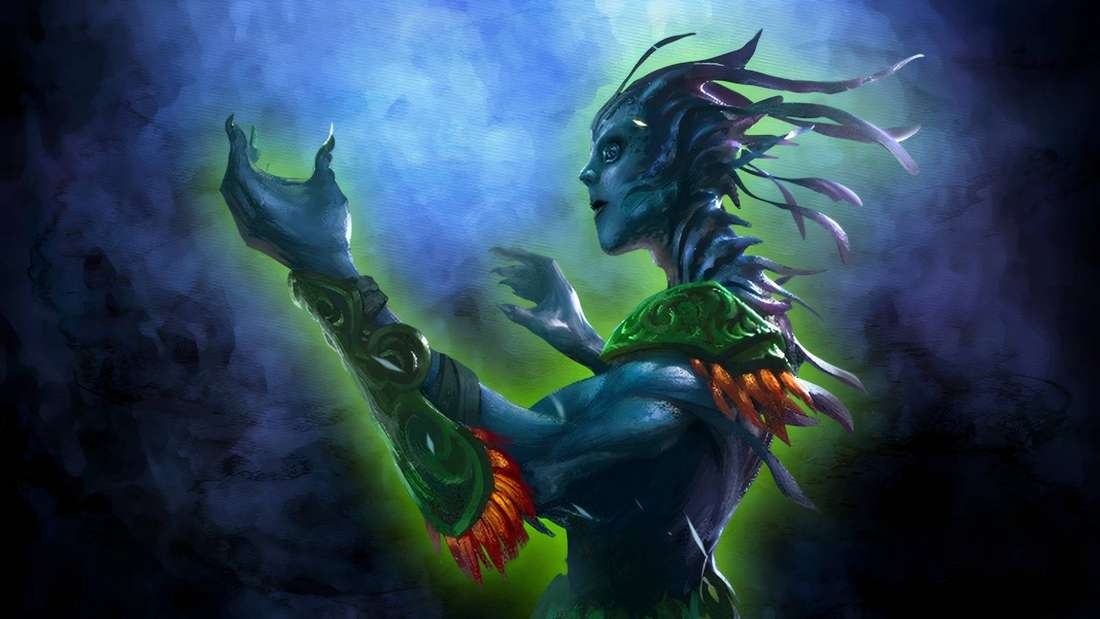Unconfirmed Ban Rumors Shake Commander: Is the Format’s Power Creep Finally Reaching a Critical Juncture?
Popular Now
 Stumble Guys
Stumble Guys
 Minecraft
Minecraft
 Brawl Stars
Brawl Stars
 Fortnite
Fortnite
 R.E.P.O
R.E.P.O
 Toca Boca World
Toca Boca World
 BeamNG.drive
BeamNG.drive
 Candy Crush Saga
Candy Crush Saga
 God of War Ragnarök
God of War Ragnarök
 Roblox
Roblox 
The Magic: The Gathering (MTG) community is once again buzzing with speculation, following unconfirmed reports that the Commander Rules Committee (RC) is considering the banishment of two of the format’s most notoriously powerful cards. While the RC maintains a deliberate and often slow pace in its decisions—a philosophy meant to preserve the format’s organic feel—whispers of an imminent, high-impact announcement have put a spotlight on high-value staples that many consider detrimental to casual gameplay.
This potential move comes at a time when Commander’s metagame is under increasing scrutiny. The influx of powerful, often low-mana-cost cards printed in recent years has pushed the power ceiling higher than ever, creating an undeniable divide between casual tables and optimized, competitive Commander (cEDH) decks. The RC’s previous, often controversial, updates—such as the ban of Lutri, the Spellchaser or the unban of certain older cards—have shown a willingness to address format health, making these new rumors carry significant weight.
The Contenders for the Axe: Power, Price, and Player Frustration
Although the identities of the cards remain speculative, community consensus and recent discussions point toward two major offenders that have consistently skewed game balance and discouraged positive player experiences. These cards, often referred to as “format defining,” are also some of the most expensive and sought-after in the secondary market, impacting their Cost Per Card (CPC) and the financial accessibility of the format.
The two most frequently cited cards in the rumor mill are:
- Dockside Extortionist: This two-mana Red Creature-Pirate has long been an object of debate. Its enter-the-battlefield ability, which creates Treasure tokens equal to the number of artifacts and enchantments opponents control, often leads to an immediate and massive surge of mana ramp. In a typical multiplayer game, it can easily generate six to ten, or even more, Treasures, allowing its controller to essentially “skip” several turns ahead in development and unleash devastating follow-up plays. The card’s high CPC is a direct reflection of its power, and its mere existence forces all decks to consider faster strategies.
- Thassa’s Oracle: A two-mana Blue Creature-Merfolk Wizard, this card is the lynchpin of the most dominant and efficient combo win conditions in Commander. When combined with cards like Demonic Consultation or Tainted Pact, it enables a player to win the game instantly by fulfilling the condition of having a devotion to Blue greater than or equal to the number of cards in their library. This instant-win strategy drastically shortens games, bypassing traditional combat and resource denial, which is often cited as being an anti-climactic and unfun play pattern for many casual groups.
Why Now? Analyzing the RC’s Evolving Philosophy on Format Health
The timing of these rumored bans is key, suggesting a response to escalating power levels that have reached a perceived tipping point. The Commander Rules Committee (RC), which governs the ban list, has historically been hesitant to ban cards based purely on power, preferring to encourage “Rule 0” discussions among playgroups. However, the prevalence and sheer efficiency of these two cards, particularly Dockside Extortionist for its explosive mana generation and Thassa’s Oracle for its turn-one kill potential in cEDH, has put significant pressure on the format’s integrity.
The decision-making process likely centers on two crucial pillars of the Commander philosophy:
- Diversity of Strategy: When a few cards become so generically powerful that they are auto-includes in nearly every deck that can run them (a phenomenon known as format homogenization), the diversity of viable strategies suffers. Banning them would force players to explore less efficient, but more varied, deck construction paths.
- Group Social Contract: The RC aims for a positive social contract. Cards that consistently lead to feel-bad moments—such as abrupt, unpreventable wins or one player gaining an insurmountable advantage too early—are the primary targets. Both rumored cards are frequently mentioned in community discussions as being the root cause of these negative interactions, regardless of a playgroup’s stated power level. This focus on the “health of the format” supersedes concerns over card value and the investment players have made.
The Potential Fallout: Market Impact and Commander’s Future
Should these bans materialize, the financial impact on the secondary market would be immediate and significant. Cards like Dockside Extortionist command premium prices due to their universal playability. A ban would cause their value to plummet, creating a major shake-up for collectors and investors. Conversely, the prices of alternative, less efficient card advantage and mana production pieces would likely see a noticeable spike, as players scramble to fill the void in their optimized decks. This financial volatility is a recurring challenge for the collectible card game (CCG) market.
More importantly, the bans would send a clear message: the RC is prepared to take decisive action to preserve the format’s intended feel. This may lead to an era of increased caution in new set development regarding generically powerful, low-cost staples. It reinforces the community’s responsibility to adhere to the spirit of the format, focusing on fun and creative deckbuilding over pure power optimization—a key tenet of the Commander format’s original design.
Players are advised to monitor official channels closely. The next ban list announcement, even if minor, could confirm the RC’s direction and definitively address the growing divide caused by these overpowered (OP) cards and their dominant win rates. The future of the world’s most popular MTG format hangs in the balance, awaiting an official ruling that promises to be one of the most defining moments in its recent history.








